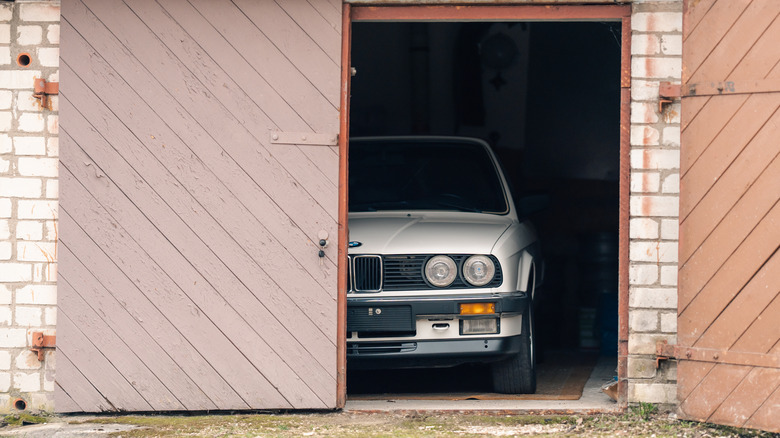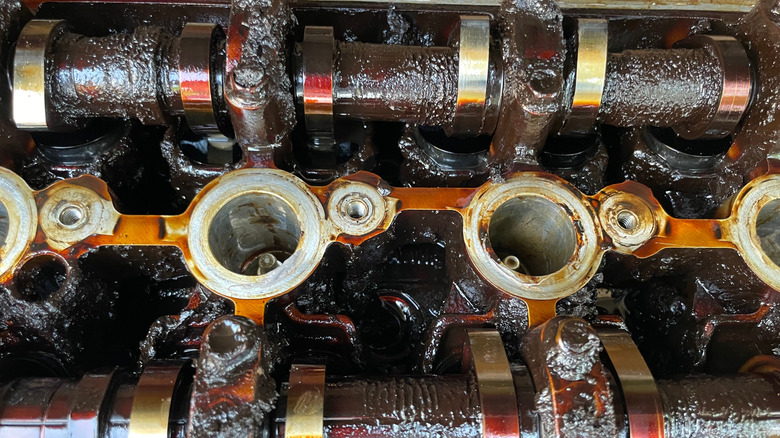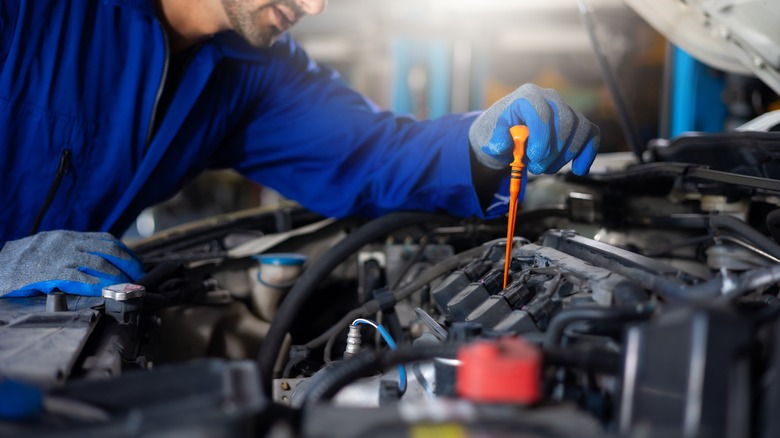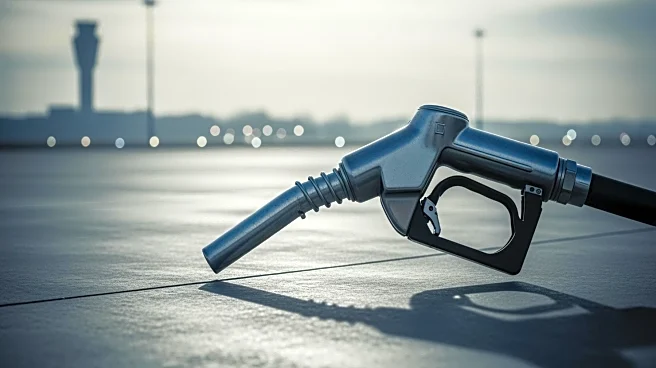
Many car owners think oil only fails when the miles rack up. Wrong. Even when your ride sits for months, oil ages and degrade. Factors like exposure to condensation, temperature swings, and contaminant
buildup silently degrades the additives. Garage conditions — especially humid ones — allow water vapor to form in the crankcase, slowly turning additives acidic and useless. If you're planning to store your car for a certain period, keep in mind the oil's condition before starting it.
Even without mileage, moisture and acid accumulate over time. Most mechanics recommend an annual or semiannual oil change even on low-mileage vehicles. Letting oil sit for more than a year invites sludge, corrosion, and reduced lubrication capacity -- even if you haven't driven at all. Time-based aging is real, despite synthetic stability. New oil can last years in storage, but additives degrade sooner once inside an engine -- even unused. And lubricant labs agree: Oxidation changes oil properties and weakens anti-wear chemistry regardless of driving. The bottle hasn't aged, but oil in the crankcase? It's on the clock. Just because the car is parked doesn't mean the oil is safe.
Read more: These Are What You Wanted As First Cars (And What You Got Instead)
Sludge, Separation, And Silent Decay

I've seen this firsthand. My old car sat for roughly five years after the engine died. Never changed the oil — why would I? It wasn't running. But when I finally opened the engine again, the oil wasn't oil anymore. It had turned into a dark, sticky jelly. Not thick oil liquid. Jelly.
Let your oil sit too long and things start to go sideways under the hood. First, the lubrication breaks down. That protective film between all those hot, angry metal parts? It vanishes. What's left is metal grinding on metal. You won't hear it at first, but give it time — the surprise won't be nice.
Moisture seeps into the crankcase, especially in colder or humid garages, and condensation builds when engines never get warm enough to burn it off. That water mixes with oxygen and oil additives, forming acids that corrode internal components. Over time, detergents and dispersants break down, leading to sludge buildup instead of protection.
Then there's fuel efficiency, which you need to care about even though fuel efficiency standards are dead. Old oil gets sluggish, like trying to run through a thick maple syrup. The engine has to work harder to get the same result, so you burn more gas doing less. It's like paying for premium and getting gas-station coffee instead.
Unused oil doesn't just sit there like a loyal sidekick. Ignore it and it slowly turns into the enemy. The oil might look fine on the surface, but give it a stir and it reveals what's lurking underneath.
Yes, You Should Change It Even If You Haven't Moved

Manufacturers like Honda and Toyota know this and recommend oil changes not just by miles but by time, regardless of usage -- usually every six to 12 months -- depending on the model and type of engine oil. Skipping it may void conditional warranties, too. And remember that an oil change is much cheaper than engine flushing or doing total sludge removal from your engine.
Here's a quick visual (and sensory) cheat sheet. Fresh oil is a light brown and glides like warm honey. If it looks like used espresso sludge, that's a problem. If it smells like something's burning? You're late. Gritty texture when you rub it between your fingers? That's engine-destroying debris. Basically, if it looks, smells, or feels like regret -- it probably is.
For storage of rare-use vehicles, using synthetic oil can help -- thanks to better oxidation resistance, high shielding property and longer lifespan -- but still, nothing stops acid buildup entirely. Experts recommend changing oil before and after storage or long inactive periods. Make it a habit to start the car once in a while to circulate the oil. Also, using oil stabilizers can help prolong oil lifespan if it's going to idle for a period. Worn-out oil that's never turned can cost you much more than a filter and bottle. Oil changes may be boring but they're essential — ignoring this routine may cost you your engine.
Want more like this? Join the Jalopnik newsletter to get the latest auto news sent straight to your inbox...
Read the original article on Jalopnik.










